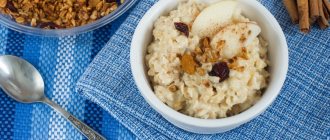January 28, 2022, 12:34 pm - Public News Service - OSN Bananas are a popular but controversial fruit. Too sweet and too exotic, could they be good for Russians? In fact, this fruit is not so simple! Professor, Honored Doctor of Russia, Chief Physician of the State Clinical Hospital named after A. V.V. Vinogradova Olga Sharapova .
Professor, Honored Doctor of Russia Olga Sharapova
History of bananas
The birthplace of the banana is Southeast Asia (Malay Archipelago), where bananas appeared in the 11th century BC.
They were eaten, flour was made from them, and bread was made from them. True, the bananas did not look like modern crescents. There were seeds inside the fruit. Such fruits (although according to botanical characteristics, a banana is a berry) were imported and brought people the main income. America is considered the second homeland of the banana, where the priest Thomas de Berlanca first brought a shoot of this crop many years ago. The state of California even has a museum dedicated to bananas. It contains more than 17 thousand exhibits - fruits made of metals, ceramics, plastic and so on. The museum was included in the Guinness Book of Records in the category of the largest collection in the world dedicated to one fruit.
Answers to frequently asked questions
Below are the answers to the most controversial questions regarding eating bananas:
- Which types are the most useful? The healthiest ones are medium-sized, ripe yellow bananas; they contain the highest content of valuable vitamins and minerals. Fresh green bananas are not suitable for consumption; you should wait until they are ripe. Overripe bananas also lose their beneficial qualities. There is no difference between small and large fruits.
- Are dried fruits healthy? Yes! During drying, bananas are not exposed to high temperatures and chemicals. The content of nutritional components in dried bananas is even slightly higher than in the original product.
- Is it possible to eat them on an empty stomach in the morning? Eating bananas on an empty stomach after waking up can disrupt the natural potassium-magnesium balance and cause the development of feelings of fatigue or drowsiness. The fruit can be consumed after a standard breakfast or during it, be sure to combine it with other products.
- Can I eat them at night before bed? Bananas slow down gastric motility and place increased stress on the digestive system. It is recommended to eat bananas no later than 2-3 hours before bedtime.
- Can I use them every day? Yes! Bananas have a large amount of valuable fiber and nutrients that are not capable of causing significant disturbances in the body.
Benefits of bananas
Banana is not only tasty, but also a healthy treat for children and adults. Its pulp contains many useful microelements that have a beneficial effect on the body.
The B group of vitamins (B1, B2, B6), vitamin C and PP are responsible for nourishing the body so that a person is energetic and efficient. Beta-carotene, calcium, potassium, iron, fluorine, phosphorus affect the functioning of the entire body. They reduce the level of “bad” cholesterol, normalize the functioning of the gastrointestinal tract and cardiac system.
Bananas are a great helper in the fight against stress, seasonal depression and bad mood. Biogenic amines - serotonin, tyramine and dopamine - affect the central nervous system. They help calm down after a nervous day or breakdown.
Is banana a fruit or a berry?
Many people think that they grow on a palm tree. No! These are the fruits of a perennial herbaceous plant of the same genus of the Banana family. It really looks like a palm tree: tall (3-10 meters), with a straight trunk and huge leaves 2-2.5 m long.
It lives in the tropics and subtropics: on the Pacific Islands, Australia, Malaysia, India, China, Brazil, Indonesia. The fruits ripen in clusters hanging from the top. The main supplier to the Russian market is Ecuador.
I was very surprised when I found out that from a botanical point of view, bananas are not fruits, but berries (like watermelons). It turns out that they fully meet the criteria: they do not grow on trees, have no hard trunk, and are covered with skin. There are no seeds in cultivated varieties, but they are present in wild forms. The fruit resembles fruit only in its sweet taste.
Ripe bananas have a bright yellow peel that peels off easily. This makes them a convenient and hygienic option for snacking anywhere. Inside there is a delicate pulp of pleasant taste with a subtle aroma. You can eat it without worrying about keeping your hands clean.
The peel is inedible. It makes up 30-35% of the total mass of the fruit.
Harm of bananas
Bananas are digested slowly, so overweight people should avoid consuming them. It is also not recommended to eat them before lunch or dinner. There may be a feeling of heaviness and bloating.
Immediately after a fruit snack, you should not drink water, juice or eat a banana on an empty stomach. The best option is to eat a banana an hour after eating - as a brunch or afternoon snack.
Bananas should not be consumed by people who have problems with blood clots or blood vessels. Because they thicken the blood and increase its viscosity. This can cause thrombosis of veins and arteries. On this basis, bananas can cause problems with potency in men, as they slow down blood flow in the cavernous body of the penis.
More fruits
Manadrines: the benefits and harms of sweet citrus fruits
On the downsides: why are bananas harmful?
With all their advantages and balanced chemical composition, bananas are contraindicated for some people. This can be explained by several factors.
High glycemic index
Bananas are high in sugar and have a high glycemic index, so they quickly raise insulin levels. As we have already said, diabetics should treat this product with extreme caution.
Photo: istockphoto.com
Increases blood viscosity
Bananas remove fluid from the body, which leads to an increase in blood viscosity and a decrease in its flow to certain parts of the body. Therefore, it is not recommended to eat fruits if you have venous diseases, a tendency to form blood clots, or coronary heart disease.
Exacerbations of gastrointestinal diseases
Despite the fact that bananas have a beneficial effect on the functioning of the gastrointestinal tract, in case of exacerbation of diseases, it is worth giving up on them for a while. Berries are also not recommended for irritable bowel syndrome, as they can cause bloating.
Excess weight
If you are overweight, bananas can be consumed in small quantities. One fruit won’t cause any harm in the morning, but you shouldn’t eat too many of them, because it’s a high-calorie product.
"Margarita" on thick. Why pizza is becoming part of sports nutrition
Use of bananas in medicine
Banana is rich in potassium, so it is recommended for athletes due to its ability to relieve muscle spasms during physical activity. It relieves pain and relieves spasms and cramps that appear in the body due to lack of potassium.
Bananas contain a natural hormone called melatonin, which affects your wake and sleep cycles. Therefore, for a good rest, you can eat a banana a few hours before bed.
Photo: pixabay.com
Banana removes fluid from the body and lowers blood pressure; it is useful for anemia, as it contains the necessary amount of iron, potassium and magnesium. These microelements normalize the level of hemoglobin in the blood.
— Due to the high potassium content, bananas remove fluid from the body and help control blood pressure. May be recommended for people with atherosclerosis. Bananas help with frequent heartburn, have an enveloping effect, and they reduce acidity in gastritis. Protect the mucous membrane from the aggressive action of hydrochloric acid of gastric juice. But with inflammatory processes in the stomach, bananas can increase painful symptoms, as they can cause flatulence. Due to the content of soluble fiber, the fruit helps remove toxins from the body and promotes gentle cleansing of the intestines. May be useful for women with PMS. By stimulating the production of pleasure hormones, banana improves mood. Bananas are useful for children as a first complementary food, as they are hypoallergenic and suitable for any age. Bananas are an excellent snack for athletes and those who lead an active lifestyle, says nutritionist, candidate of medical sciences Elena Solomatina.
Look also
Avocado: benefits of this popular fruit
Bet on maturity
Photo: depositphotos/OlesySH
Green bananas, according to Lushnikova, can and should be included in the diet of people trying to normalize weight and those with type 2 diabetes. But the doctor advises to be careful with ripe fruits. As bananas ripen, resistant starch is broken down by enzymes found directly in the fruit and converted into simple sugars.
The ripe fruit is tastier and sweeter, but its glycemic index is much higher than that of the unripe one. You can afford half a ripe banana even if you are obese and have type 2 diabetes, but preferably as a dessert, after the main meal, and include it in your daily calorie intake. Olga Lushnikova
therapist, nutritionist
“Or use a banana as a snack, combining it with nuts. Healthy fats and vegetable protein from nuts serve as a kind of “buffer” - as a result, blood sugar will not rise sharply,” says the expert.
Nevertheless, according to Lushnikova, ripe bananas also have advantages over green ones. “Ripe fruits contain significantly more natural antioxidants, including substances with anti-cancer activity,” the nutritionist said.
However, as for vitamins and microelements, as they mature, their quantity decreases.
Use of bananas in cooking
Most often, bananas are eaten fresh. Or as a snack with cottage cheese, yogurt or melted chocolate. Banana is used as an additive to desserts; it is added when preparing cakes, pastries, and fruit salads.
Bananas are baked, dried, and added to the dough. They are used to prepare cookies, muffins and syrups.
Banana cupcake
This hearty delicacy is suitable for healthy people and those on a gluten-free diet. Only natural products are prepared. Cooking time – half an hour.
Photo: pixabay.com
| Sugar | 140 g |
| Eggs | 2 pcs. |
| Bananas | 3 pcs. |
| Butter | 100 g |
Grind sugar with butter, add eggs and bananas. Mix everything thoroughly and place in the prepared mold. Bake for about 15-20 minutes at 190 degrees until the cake is golden brown.
Share your recipe
Send the recipe for your signature dish to the mail "Komsomolskaya Pravda" will publish the most interesting and unusual ideas
Share
Banana pancakes
An ideal option for a Saturday or Sunday breakfast, when you can relax and treat yourself to delicious and simple pancakes recipe. Pancakes with banana are tender, nutritious and healthy.
Photo: pixabay.com
| Egg | 1 PC. |
| Bananas | 2 pcs. |
| Milk | 0.25 cups |
| Sugar | 0.5 cups |
| Wheat flour | 1 glass |
Mix banana, milk, sugar and eggs in a blender until smooth, add flour to it. Spoon the resulting dough into a thin layer onto a hot frying pan and fry over medium heat.
Ruddy pancakes can be seasoned with sour cream, jam or condensed milk.
Share your recipe
Send the recipe for your signature dish to the mail "Komsomolskaya Pravda" will publish the most interesting and unusual ideas
Share
Calorie content and composition
The calorie content of bananas may vary depending on the variety, degree of ripeness, and type of processing. This is due to the different composition of sugars and their content in the product. Plantains are higher in calories. On average, 100 grams of ripe dessert bananas contain from 65 to 150 kcal . Many calorie tables for this product give an indicator of 89 kcal (average data). The energy value of dried bananas reaches 298–346 kcal .
Nutritional properties of dessert bananas per 100 g of product:
| Parameter | Ripe | Greens | Dried |
| Moisture (g) | 68–78 | 72 | 13,5 |
| Proteins (g) | 1,1–1,8 | 1,3 | 3,9 |
| Fat (g) | 0,3 | 0,4 | 1,8 |
| Carbohydrates (g) | 23 | 32 | 88 |
| Potassium (mg) | 358 | 499 | |
| Sodium (mg) | 1 | 4 | 3 |
| Calcium (mg) | 3–13 | 11 | |
| Magnesium (mg) | 27 | 37 | |
| Iron (mg) | 0,3–1,5 | 0,9 | |
| Phosphorus (mg) | 16-50 | 28 | |
| Vitamin A (IU) | 64 | ||
| Vitamin B1 (mg) | 0,04–0,05 | ||
| Vitamin B2 (mg) | 0,05–0,07 | ||
| Vitamin B6 (mg) | 0,4 | 0,3 | |
| Vitamin C (mg) | 8,7 | 18,4 | |
| Vitamin PP (mg) | 0,6–1,1 | ||
| Fiber (g) | 2,6 | 2,3 | 9,9 |
| Sugar (g) | 12 | 15 | |
| Tryptophan (mg) | 17–19 | ||
| Methionine (mg) | 7–10 | ||
| Lysine (mg) | 58–76 |
How to choose and store bananas correctly
Go to the market to buy bananas. The best bananas come from India. When choosing, focus on the color of the fruit and its smell. There should be no darkened spots on the fruits; the yellow color should be even and uniform.
Ideally, the tail of the fruit should be slightly green. This indicates the freshness of the product and that in a few days the banana will become ripe.
In order for the fruit to ripen, you need to keep it in a room in a dark place. You can’t put it in the open sun, otherwise it will turn black.
Do not store ripe fruits in the refrigerator. The ideal temperature is 15 degrees.
Contraindications for eating green bananas
There are also contraindications to their use. Some people have an individual intolerance to unripe banana fruits. People with chronic stomach diseases are not recommended to eat unripe fruits, as there is a risk of indigestion.
You shouldn't overuse green bananas either. Large amounts of resistant starch that cannot be digested in the stomach can lead to bloating and flatulence. People suffering from allergies should consult a doctor before eating unripe fruits, as they can cause complex allergic reactions in the body.
Daily intake
As described above, green bananas contain high amounts of potassium. The adult body's need for this mineral is 4.7 thousand mg. Based on this fact, you can eat 1 unripe banana daily.
Useful video
In many countries, bananas are one of the main sources of nutrition - for example, in Ecuador alone, the annual consumption of this product per capita is 73.8 kg (for comparison, in Russia this figure is 7.29 kg). Edible varieties of bananas are conventionally divided into two main groups: dessert, consumed mainly raw or dried, and plantains (or platano), which require heat treatment before consumption. The pulp of dessert varieties is very sweet in taste, contains a large amount of carbohydrates, vitamin C and some minerals necessary for the body:
Is it good or bad for the body?
It is known that some foods are best eaten in the morning, while others, even with a night snack, will not cause harm.
For breakfast
A morning meal can give you energy for the whole day. Many nutritionists recommend eating bananas for breakfast. Is it really useful or not? Consuming fruit in the morning will not only prevent you from feeling hungry for a long time, but will also give you a good mood. In addition, the body will have enough time to absorb all the nutrients.
Oatmeal with banana slices and honey is a great start to the day.
For the night
It is better to opt for lighter foods than eating bananas at night. Is it good or bad to eat yellow fruit and go to bed? Unfortunately, the fruit takes quite a long time to digest. Intense digestion will certainly affect the quality of sleep. Glucose and fructose have an invigorating effect. If you want to get a good night's sleep, then you should eat fruit with benefits the next day.
On an empty stomach
You can eat both large and small bananas on an empty stomach. The benefit is that the fruit quickly satisfies hunger and facilitates the intellectual activity of the body. Its enveloping texture does not cause harm to the gastrointestinal tract, and its mild taste does not provoke thirst. You can take the fruits with you on the road and, if necessary, eat bananas on an empty stomach. The benefits and harms here are shifted towards the former.
For heart
The beneficial effects on the cardiovascular system have already been discussed above. Even cardiologists include these yellow fruits in their patients' diets. What beneficial substances in bananas play a significant role in heart function:
- potassium – ensures the passage of impulses and heart contractions;
- calcium – necessary for the rhythmic functioning of the heart and important for contractility;
- nicotinic acid – helps to dilate blood vessels and normalize blood pressure in the body.
Only a specialist can determine whether bananas are good for the heart in a particular case. In the absence of contraindications, reasonable consumption of the fruit will not cause harm.
For the liver
This organ liked the exotic fruit. The high fiber content helps cleanse the body and facilitates liver function. However, an excess amount of fruits in the diet leads to a significant intake of fructose into the body, which causes harm to the organ. Whether bananas are good for the liver depends on the amount in the diet.
A banana will be beneficial not only to the liver, but to the entire body as a whole.
For the stomach
Benefits and harms depend on the state of health and characteristics of the body. Bananas are good for the stomach of a healthy person or those with chronic diseases. Acute pathologies require that the fetus be excluded from the diet. With an ulcer, acute pancreatitis or cholecystitis, the fruit can be harmful. A good laxative effect can be achieved by eating kefir with a banana. Benefits and harms depend on the indications.











